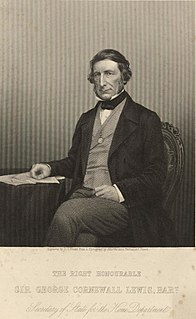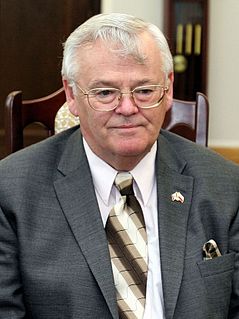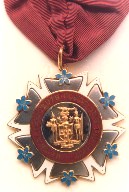| Office | Post-nominal |
|---|---|
| Honours System | |
| The Order of National Hero | None [lower-roman 1] |
| The Order of the Nation | ON [lower-roman 2] |
| The Order of Jamaica | OJ [lower-roman 3] |
| Order of Distinction [lower-roman 4] | |
| Commander | CD |
| Officer | OD |
| Office | Post-nominal |
|---|---|
| Honours System | |
| The Order of National Hero | None [lower-roman 1] |
| The Order of the Nation | ON [lower-roman 2] |
| The Order of Jamaica | OJ [lower-roman 3] |
| Order of Distinction [lower-roman 4] | |
| Commander | CD |
| Officer | OD |

The Right Honourable is an honorific style traditionally applied to certain persons and collective bodies in the United Kingdom, the former British Empire and the Commonwealth of Nations. The term is predominantly used today as a style associated with the holding of certain senior public offices in the United Kingdom, Canada, and New Zealand.

The Most Excellent Order of the British Empire is a British order of chivalry, rewarding contributions to the arts and sciences, work with charitable and welfare organisations, and public service outside the civil service. It was established on 4 June 1917 by King George V and comprises five classes across both civil and military divisions, with the most senior two classes making the recipient either a knight if male or dame if female. There is also the related British Empire Medal, whose recipients are affiliated with, but not members of the order.
Sir is a formal honorific address in English for men, derived from Sire in the High Middle Ages. Both are derived from the old French "Sieur" (Lord), brought to England in 1066 by the French-speaking Normans, and which now exist in French only as part of "Monsieur", with the equivalent "My Lord" in English. Traditionally, as governed by law and custom, Sir is used for men titled as knights, often as members of orders of chivalry, as well as later applied to baronets and other offices. As the female equivalent for knighthood is damehood, the suo jure female equivalent term is typically Dame. The wife of a knight or baronet tends to be addressed as Lady, although a few exceptions and interchanges of these uses exist.

The Most Honourable Order of the Bath is a British order of chivalry founded by George I on 18 May 1725. The name derives from the elaborate medieval ceremony for appointing a knight, which involved bathing as one of its elements. The knights so created were known as "Knights of the Bath". George I "erected the Knights of the Bath into a regular Military Order". He did not revive the Order of the Bath, since it had never previously existed as an Order, in the sense of a body of knights who were governed by a set of statutes and whose numbers were replenished when vacancies occurred.
Forms of address used in the United Kingdom are given below.
Post-nominal letters, also called post-nominal initials, post-nominal titles, designatory letters or simply post-nominals, are letters placed after a person's name to indicate that the individual holds a position, academic degree, accreditation, office, military decoration, or honour, or is a member of a religious institute or fraternity. An individual may use several different sets of post-nominal letters, but in some contexts it may be customary to limit the number of sets to one or just a few. The order in which post-nominals are listed after a name is based on rules of precedence and what is appropriate for a given situation. Post-nominal letters are one of the main types of name suffix. In contrast, pre-nominal letters precede the name rather than following it, such as addressing a physician or professor as "Dr. Smith".

George Herbert Hyde Villiers, 6th Earl of Clarendon,, styled Lord Hyde from 1877 to 1914, was a British Conservative politician from the Villiers family. He served as Governor-General of the Union of South Africa from 1931 to 1937.

Noël Augustus Kinsella, is a Canadian politician and was Speaker of the Senate of Canada from 2006 to 2014.

The Queen's Service Order, established by royal warrant of Queen Elizabeth II on 13 March 1975, is used to recognise "valuable voluntary service to the community or meritorious and faithful services to the Crown or similar services within the public sector, whether in elected or appointed office". This order was created after a review of New Zealand's honours system in 1974. The Queen's Service Order replaced the Imperial Service Order in New Zealand.

The Order of Merit is part of the Jamaican honours system, and it is the fourth-highest honour awarded by the nation of Jamaica. The Order of Merit is conferred upon Jamaicans or distinguished citizens of other countries who have achieved international distinction in the field of science, the arts, literature or any other endeavour. The award can be held by no more than 15 living persons. It is not given to more than two people in any one year.

Fellowship of the Royal Society of Edinburgh (FRSE) is an award granted to individuals that the Royal Society of Edinburgh, Scotland's national academy of science and letters, judged to be "eminently distinguished in their subject". This society had received a royal charter in 1783, allowing for its expansion.

In the United Kingdom, a Member of Parliament (MP) is an individual elected to serve in the House of Commons of the Parliament of the United Kingdom.
The Order of the Nation is a Jamaican honour. It is a part of the Jamaican honours system and was instituted in 1973 as the second-highest honour in the country, with the Order of National Hero being the highest honour.

The Order of Jamaica is the fifth of the six orders in the Jamaican honours system. The Order was established in 1969, and it is considered the equivalent of a knighthood in the British honours system.

The Order of Distinction is a national order in the Jamaican honours system. It is the sixth in order of precedence of the Orders of Societies of Honour, which were instituted by an Act of Parliament in 1968. The motto of the Order is "Distinction Through Service".
The Barbados National Honours and Decorations system is similar to that of the United Kingdom. Likewise, it consists of three types of award – honours, decorations and medals. Appointments are made on a yearly basis on Independence Day by the President of Barbados.
The prefix The Honourable, abbreviated to The Hon., Hon., or The Hon'ble, is an honorific style that is used before the names of certain classes of people.
The Order of Freedom of Barbados is a national honour established by the Order of Freedom of Barbados Act 2019 by the Parliament of Barbados. As part within the overarching Order of Barbados, it ranks higher than the Order of the Republic, but is below the separate and supreme Order of National Heroes.